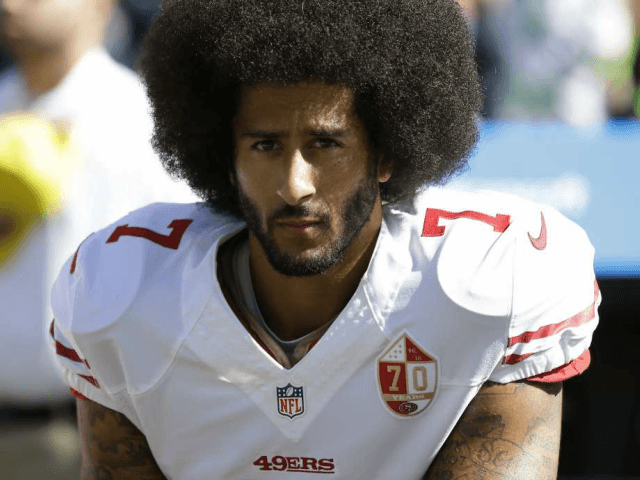The California chapter of the NAACP is advising Congress to abolish the national anthem, calling the song a “racist” relic of the past.
At its October state conference meeting, the NAACP passed a resolution attacking the “Star Spangled Banner” and calling it “one of the most racist, pro-slavery, anti-black songs in the American lexicon.”
The resolution was passed as a measure of support for former NFL player Colin Kaepernick who is most remarkable as the inventor of the national anthem protest started at the beginning of the 2016 NFL football season.
“We owe a lot of it to Kaepernick,” said California NAACP President Alice Huffman, according to the Sacramento Bee. “I think all this controversy about the knee will go away once the song is removed.”
The organization justifies its criticism of the anthem because of the song’s original third verse which was never included as the version approved by Congress as the country’s national song.
The original third verse, written by Francis Scott Key in 1814, reads, “No refuge could save the hireling and slave/From the terror of flight or the gloom of the grave.”
This, the NAACP claimed, is a celebration of slavery. But, the claim has been ridiculed by many historians who say that the words actually referred the British Navy’s practice of impressing American sailors into serving the Crown, essentially making them slaves to the British Navy. That practice, known at the time as impressment, was one of the main causes of the War of 1812, the war that inspired the writing of the song.
But, regardless of what the original third verse meant or didn’t mean, a further point tends to debunk the “slavery” claim about the national anthem. The version of the song that was officially enshrined as our national anthem does not even contain the purportedly offensive verse. The verse had been written out of the song over the decades following the Civil War, and up to the time, it became our official anthem in 1931.
Still, the California NAACP is seeking congressional sponsors to rescind the status of “The Star-Spangled Banner” as our national anthem.
“This song is wrong. It shouldn’t have been there, we didn’t have it ‘til 1931,” Huffman said. “So it won’t kill us if it goes away.”
Follow Warner Todd Huston on Twitter @warnerthuston.

COMMENTS
Please let us know if you're having issues with commenting.